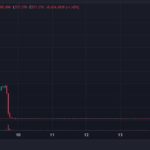The landscape of cryptocurrency regulation has significantly evolved, with dedicated oversight emerging in various regions. At the forefront is Dubai’s Virtual Assets Regulatory Authority (VARA), known for its targeted approach to crypto regulation and transparent communication with businesses. Senior director Sean McHugh highlights that effective regulation in the crypto space requires ongoing dialogue and adaptability, stating that “set and forget does not work for crypto; it’s all about feedback and open channels.” This dynamic environment has positioned Dubai as a leading hub for cryptocurrency firms from around the globe.
Dubai’s appeal as a crypto destination is largely due to its clarity in regulatory policies, which encourages both local and international companies to establish their operations there. McHugh notes the city’s attractiveness for firms from Europe and Asia, calling it a “great jumping off point” for expanding into broader markets. This regulatory clarity, coupled with Dubai’s pro-business ethos, fosters an environment ripe for innovation and growth in the crypto sector.
Tokenization, particularly in the real estate sector, is gaining momentum in Dubai. The Dubai Land Department (DLD) has initiated a pilot program to register and transfer property deeds on the blockchain, paving the way for a significant transformation in how real estate transactions are conducted. According to projections, tokenized real estate is expected to surge to 60 billion dirhams (about billion) by 2033, accounting for 7% of all property transactions in the city. This initiative, supported by VARA and the Dubai Future Foundation, reflects a broader trend towards integrating digital assets into traditional industries.
As VARA monitors developments in tokenization and other asset class innovations, McHugh emphasizes the importance of safeguarding investors, especially those entering the market through fractional asset ownership. He articulates the authority’s commitment to understanding the nuances of each project, from ownership rights to liquidity options. This meticulous approach aims to ensure that new investment opportunities are both secure and transparent.
“Whether it’s real estate, precious metal, or some other asset, a big part of my focus on this is customer protection,” McHugh stressed, signifying VARA’s proactive stance in mitigating risks associated with emerging digital asset markets.
While collaboration among regulatory bodies globally is gaining traction, McHugh suggests that there won’t be a single overarching regulatory body leading the charge. Instead, he advocates for cooperative relationships and mutual agreements between agencies to better oversee the complexities of the cryptocurrency ecosystem. With its forward-thinking policies and supportive infrastructure, the future of crypto in Dubai appears promising, thanks in large part to a business-friendly environment that encourages innovation and entrepreneurship.

Crypto Regulation and Innovation in Dubai
The evolution of crypto regulation in Dubai highlights the significant strides made in overseeing digital assets. The impact of these developments extends beyond regulatory compliance, influencing both businesses and consumers. Here are the key points:
- Dedicated Oversight:
Dubai’s Virtual Assets Regulatory Authority (VARA) serves as a specialized regulator for crypto, ensuring effective communication of guidelines and regulations.
- Feedback and Open Communication:
VARA emphasizes continuous feedback and communication with crypto firms, contrasting with traditional “set and forget” regulations.
- Strategic Crypto Hub:
Dubai has emerged as a preferred destination for global crypto firms, offering regulatory clarity that attracts businesses from various regions.
- Tokenization Initiatives:
The pilot project by the Dubai Land Department to register property deeds on the blockchain represents the growing trend of real-world asset (RWA) tokenization.
- Impact on Real Estate Market:
Tokenized real estate in Dubai is projected to reach 60 billion dirhams ( billion) by 2033, potentially transforming the property transaction landscape.
- Consumer Protection Focus:
VARA emphasizes the importance of investor protection, especially with fractional ownership models that may involve new retail investors.
- Interagency Cooperation for Global Regulation:
The future of global crypto regulation relies on collaboration between various agencies rather than a single overarching authority.
- Pro-Business Environment:
Dubai’s business-friendly landscape fosters innovation and start-ups, contributing to the city’s growing reputation as a crypto-friendly region.
“Dubai has the ability to get things done quicker,” – Sean McHugh, VARA.
These points suggest that the regulatory environment in Dubai not only supports the growth of crypto and blockchain technologies but also enhances investment opportunities for consumers, ensuring they can safely navigate this evolving market.
Dubai’s VARA: Leading the Charge in Crypto Regulation
Dubai’s Virtual Assets Regulatory Authority (VARA) stands out as a trailblazer in the world of cryptocurrency regulation, especially when compared to similar initiatives around the globe. VARA’s strategic focus on clarity and continuous communication places it ahead of its peers. While other regions may struggle with fragmented regulations and bureaucratic slowdowns, VARA thrives on a streamlined approach tailored specifically to digital assets, fostering an environment ripe for innovation. This ethos resonates well with firms looking for a reliable regulatory framework, clearly establishing Dubai as a preferred destination for non-native crypto businesses.
Competitive Advantages of VARA
The proactive stance of VARA in engaging with crypto firms sets a high bar for regulators worldwide. The emphasis on feedback loops ensures that regulations evolve in tandem with technological advances. This was echoed by Sean McHugh, who pointed to the importance of open communication channels—a refreshing departure from the often rigid regulatory frameworks seen in the U.S. and Europe, where agencies can be bogged down by interdepartmental disarray. In contrast, Dubai’s efficiency can act as a magnet, attracting companies from Europe and Asia seeking a foothold in a progressive market.
Potential Disadvantages and Challenges
However, this fast-paced environment isn’t without its challenges. As VARA pushes forward with innovative regulations such as those concerning real-world asset tokenization, there’s an inherent risk of overlooking the protective needs of a burgeoning investor base. McHugh emphasized the critical importance of safeguarding retail investors, which poses a potential hurdle for the rapid acceleration of crypto adoption in the area. Balancing innovation with comprehensive consumer protections will be essential, especially as tokenization initiatives could introduce complex risks to inexperienced investors.
Who Benefits and Who Faces Risks?
Ideally, VARA’s initiatives cater well to innovative companies eager to operate in a clear regulatory framework—providing opportunities for exponential growth and global reach. Conversely, traditional financial institutions and conservative investors may find themselves at a disadvantage as they navigate the complexities of this rapidly evolving landscape. While firms may capitalize on new market openings, individuals less familiar with digital assets could face potential pitfalls without robust educational resources and support systems from regulatory bodies.

















